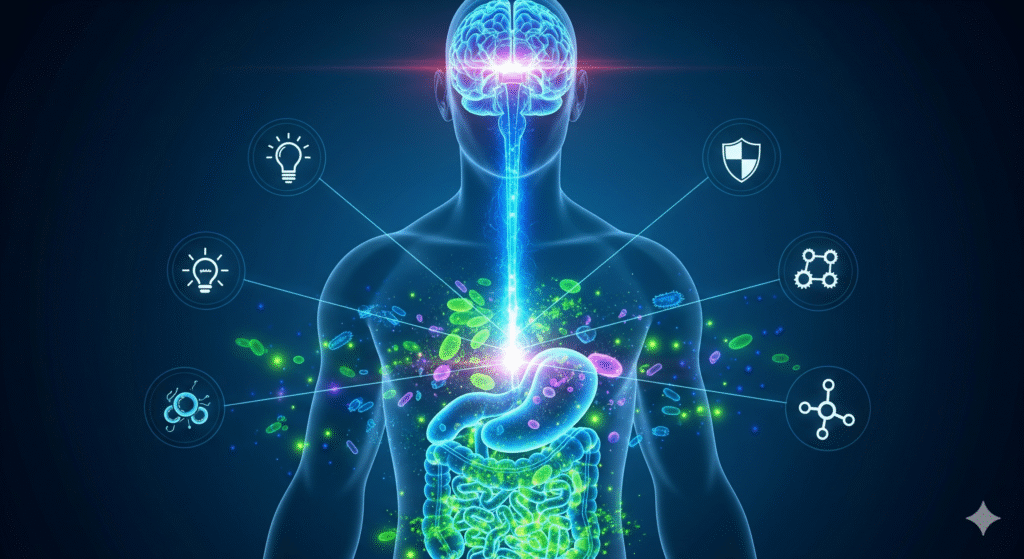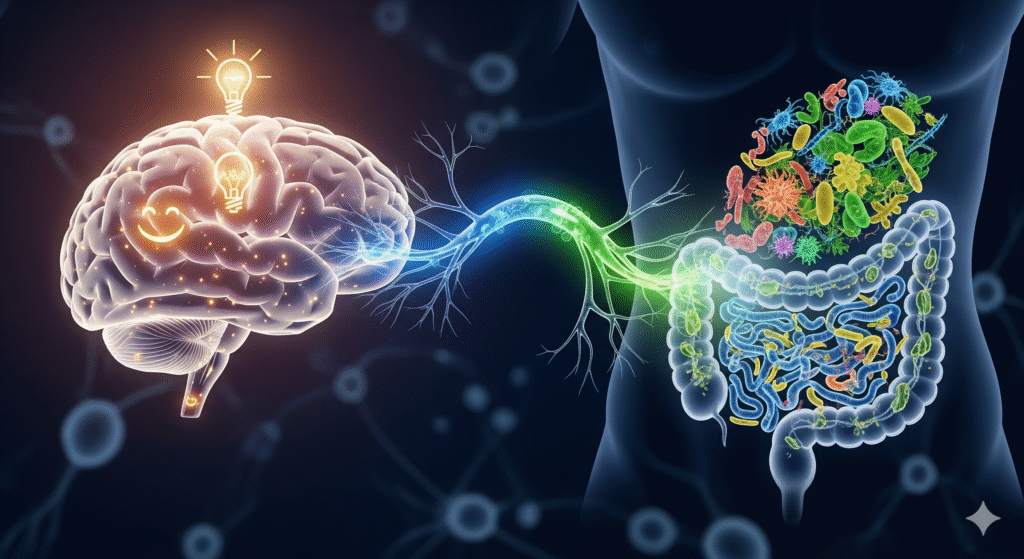Introduction
In 2025, gut health has emerged as a cornerstone of overall wellness, influencing digestion, immunity, mental health, and even metabolic health. The microbiome—the ecosystem of bacteria, fungi, and other microbes in the gut—plays a pivotal role in maintaining balance.
Modern nutrition emphasizes prebiotics, probiotics, postbiotics, and fermented foods, along with personalized strategies to optimize the gut-brain axis and support holistic health.
Gut-Brain Axis & Digestive Wellness
- The gut-brain axis connects the central nervous system and the digestive system through biochemical signaling.
- A healthy gut microbiome improves mood, cognitive function, and mental resilience, while dysbiosis can lead to stress, anxiety, and inflammation.
Key Approaches:
- Supporting beneficial bacteria with fiber-rich foods
- Reducing inflammatory triggers like processed foods and excess sugar
- Integrating mindfulness practices to reduce gut stress responses

Prebiotics, Probiotics & Postbiotics
- Prebiotics are non-digestible fibers that feed beneficial gut bacteria. Examples include chicory root, garlic, and onions.
- Probiotics are live beneficial bacteria found in fermented foods and supplements.
- Postbiotics are bioactive compounds produced by probiotics, supporting immune and gut health.
Benefits:
- Improved digestion and nutrient absorption
- Enhanced immune system function
- Reduction in gastrointestinal issues like bloating and IBS
Trending in 2025:
- Custom probiotic blends based on microbiome analysis
- Postbiotic-rich functional foods for daily health support
- Combination products integrating prebiotics, probiotics, and postbiotics
Fermented Foods & Functional Beverages
- Fermented foods like yogurt, kefir, kimchi, sauerkraut, and kombucha are staples for supporting gut health.
- Functional beverages now combine probiotics, adaptogens, and plant extracts for added health benefits.
Benefits:
- Enhance gut microbiome diversity
- Improve digestion and nutrient absorption
- Support mental health through gut-brain signaling
Personalizing Gut Health Strategies
- Personalized gut health plans leverage microbiome testing, diet tracking, and AI tools.
- Nutrition plans are tailored to optimize microbial diversity and reduce gut inflammation.
Key Methods:
- Identifying foods that support specific beneficial bacteria strains
- Using fermented and fiber-rich foods strategically in meals
- Integrating supplements like probiotics and postbiotics based on individual microbiome profiles

Future Trends in Microbiome Nutrition
- AI-driven gut health platforms providing custom dietary recommendations
- Functional foods and beverages targeted at specific health outcomes (e.g., mental clarity, immunity, metabolic support)
- Development of next-generation probiotics and postbiotic therapies for precision gut health
Emerging Concepts:
- Microbiome-targeted nutraceuticals
- Gut health integration with weight management, cognitive wellness, and metabolic health
Personalized gut health apps using real-time tracking and microbiome data


















